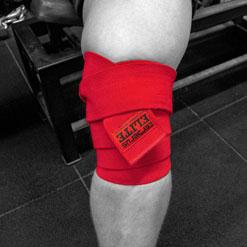
Nutrient timing is a critical aspect of nutrition strategy for strength athletes, directly influencing muscle recovery, growth, and overall training performance. This concept revolves around consuming specific nutrients at strategic times to enhance physiological responses to training. This guide unpacks the science of nutrient timing and its pivotal role in optimizing strength training outcomes.
The Fundamentals Of Nutrient Timing:
Nutrient timing focuses on the consumption of carbohydrates, proteins, and fats in relation to exercise, aiming to maximize recovery and muscle hypertrophy. The theory is grounded in the anabolic window, a period post-exercise when the body is purportedly more receptive to nutrients, facilitating improved recovery and growth. Understanding how to leverage this window can significantly enhance strength training results.
Pre-Workout Nutrition:
- Fueling Your Training: Consuming a balanced meal 2-3 hours before training, consisting of complex carbohydrates and lean protein, can ensure a steady energy supply. This meal primes the body for the demands of strength training, enhancing endurance and preventing muscle catabolism.
- Quick Energy Boost: For those unable to eat a full meal or training early, a small snack or shake containing easily digestible carbohydrates and a moderate amount of protein 30-60 minutes pre-workout can provide a rapid energy boost.
Intra-Workout Nutrition:
- Sustaining Energy: For extended training sessions exceeding an hour, sipping on a carbohydrate-electrolyte solution can help maintain energy levels, hydration, and electrolyte balance, supporting sustained performance throughout the workout.
Post-Workout Nutrition:
- The Anabolic Window: Immediately to two hours post-exercise is often cited as the optimal time to consume protein and carbohydrates to accelerate recovery and muscle protein synthesis. A ratio of 3:1 or 4:1 (carbohydrates to protein) is recommended for replenishing glycogen stores and promoting muscle repair.
- Protein Intake: Consuming 20-40 grams of high-quality protein post-workout can stimulate muscle protein synthesis, essential for muscle repair and growth.
The Role of Hydration:
- Hydration & Performance: Adequate fluid intake before, during, and after training is crucial for optimal physiological function and recovery. Dehydration can significantly impair strength performance and recovery processes.
Adapting Nutrient Timing To Individual Needs:
- Listen To Your Body: Individual responses to nutrient timing can vary based on metabolism, the intensity of training, and personal goals. It's essential to tailor your nutrition strategy to your body's signals and performance feedback.
- Flexibility: While nutrient timing provides a framework, flexibility in application is crucial. The total daily intake of macronutrients plays a more significant role in long-term training adaptations than the exact timing of nutrients.
Mastering the art of nutrient timing can elevate your strength training, enhancing muscle recovery, growth, and overall performance. By strategically planning your meals and snacks around your workouts, you can provide your body with the necessary fuel and building blocks for optimal gains. Remember, the key to effective nutrient timing is personalization and listening to your body's needs.
Incorporating nutrient timing into your strength training nutrition plan offers a strategic approach to fueling workouts and accelerating recovery. By understanding and applying these principles, you can significantly impact your muscle growth, recovery, and overall training efficiency, pushing you closer to your strength and fitness goals.
















































Really enjoyed reading my first article from Cerberus Strength!